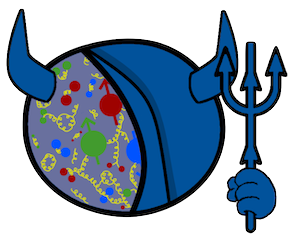Speaker
Description
Huge orbital angular momenta (OAM) are produced perpendicular to the reaction plane in non-central high energy heavy-ion collisions, and part of such huge OAM are tranferred to the hot and dense matter created in collisions. Due to the shear of the longitudinal flow particles with spins can be polarized via the spin-orbit coupling in particle scatterings. Such a type of spin polarization with respect to the reaction plane is called the global polarization and is different from the particle's polarization with respect to the production plane which depends on the particle's momentum. The global spin polarization of $\Lambda$ and $\bar{\Lambda}$ has been measured by the STAR collaboration in Au+Au collisions at 7.7 − 200 GeV. The magnitude of the global spin polarization is about 2% at 7.7 GeV to about 0.3% at 200 GeV. Another important work in this field is the first measurement by STAR collaboration on nonvanishing global spin alignment of $\phi$ mesons in heavy ion collisions. The STAR data for the global spin alignment of $\phi$ mesons show a surprisingly large positive deviation from 1/3, which may indicate the effect of the local correlation or fluctuation of strong force fields. In this talk we will give an overview on experimental and theoretical developments that have been made in the study of global spin phenomena in heavy ion collisions.

